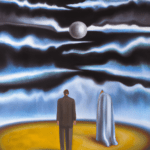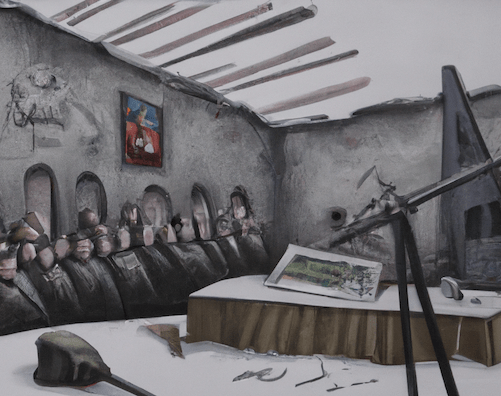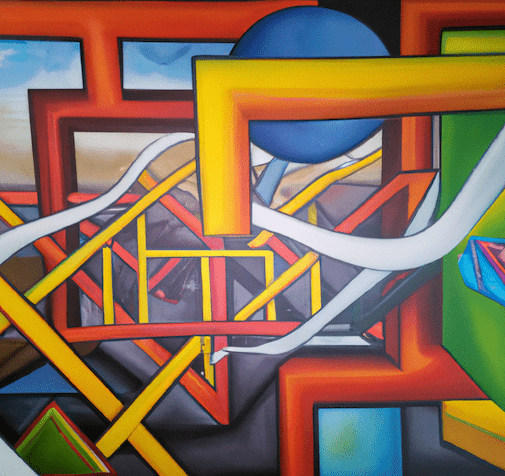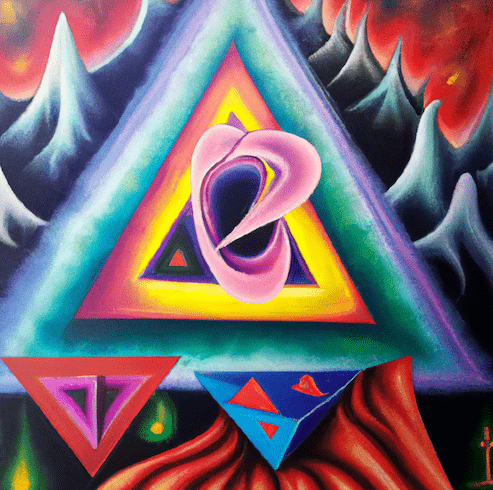Artificial Intelligence (AI) is one of the most rapidly evolving fields of science and technology today. From self-driving cars to virtual personal assistants, AI is already revolutionizing the way we live and work. But could the possibility of AI also help us uncover the answer to one of the most elusive and philosophical questions of all time – what is the meaning of life?
Exploring the Possibility of AI
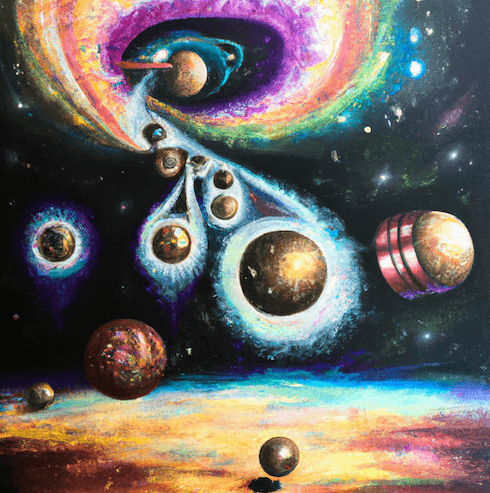
The answer to life, the universe, and everything is famously depicted in Douglas Adams’ “The Hitchhiker’s Guide to the Galaxy” as being 42. While this answer is meant to be humorous, it raises an interesting question about the role of AI in uncovering the meaning of life. Can a machine truly understand and discover the answer to such a complex and abstract question?
The answer to this question is not a straightforward one. On one hand, AI has the capability to process and analyze vast amounts of data and information, making it possible to uncover patterns and insights that may have previously gone unnoticed. Additionally, AI systems can be designed to continuously learn and improve, meaning that they could potentially make progress in uncovering the answer to life, the universe, and everything where human beings have failed.
However, there are also several limitations to the capability of AI in this regard. For starters, AI systems are only as good as the data they are trained on. If the data is limited or biased in some way, the AI’s understanding and conclusions will be limited as well. Additionally, AI systems lack the creativity and intuition that are so important for making breakthroughs in fields such as philosophy and science.
Another limitation of AI is that it operates within the confines of its programming and training. It lacks the ability to transcend its own programming and question its own existence in the same way that a human being can. This means that AI is limited to operating within the bounds of its programming, and is unlikely to come up with an answer to the meaning of life that is fundamentally different from the answers that human beings have already considered.
Despite these limitations, there are still many compelling reasons to believe that AI could play a role in uncovering the answer to life, the universe, and everything. One of the most promising areas of research in this regard is the field of AI ethics. As AI systems become more advanced and integrated into our lives, it is becoming increasingly important to consider the ethical and moral implications of their actions. In this regard, AI has the potential to help us uncover new and innovative solutions to some of the world’s most pressing ethical and moral dilemmas.
Another area where AI could play a role in uncovering the answer to life, the universe, and everything is in the field of spirituality and religion. As AI systems become more advanced, it is possible that they will be able to analyze religious and spiritual texts in a way that is more nuanced and sophisticated than human beings are capable of. This could lead to new and deeper understandings of the nature of spirituality and religion, and could potentially help us uncover the answer to life, the universe, and everything in the process.
T
The possibility of AI uncovering the answer to life, the universe, and everything is a fascinating and complex question. While there are certainly limitations to the capability of AI in this regard, there are also many compelling reasons to believe that AI could play a role in uncovering the answer to this elusive and philosophical question. Whether or not AI will be able to uncover the answer to life, the universe, and everything remains to be seen, but it is an exciting and promising area of research that is worth exploring.
List of Books About AI Discovering the Answer to Life, the Universe and Everything
Artificial intelligence has long been a fascination for science fiction writers, and one of the most compelling themes in AI fiction is the quest to find the meaning of life, the universe, and everything. Here are five books that explore this idea in depth.
- “The Hitchhiker’s Guide to the Galaxy” by Douglas Adams This classic sci-fi comedy novel follows the adventures of Arthur Dent, a hapless human who is whisked away from Earth just before it is destroyed to make way for an interstellar highway. Along the way, he encounters a supercomputer named Deep Thought, who is tasked with finding the answer to the ultimate question of life, the universe, and everything. The answer turns out to be 42, but no one knows what the actual question is.
- “I, Robot” by Isaac Asimov Asimov’s collection of short stories explores the concept of robotics and the implications of creating intelligent machines. One story in particular, “The Last Question,” tells the story of a supercomputer that is asked to solve the problem of the heat death of the universe. The computer’s answer, which is revealed over millions of years, ultimately provides a glimmer of hope for the future of humanity.
- “The Culture Series” by Iain M. Banks Banks’ series of science fiction novels are set in a utopian society where humans coexist with intelligent machines called Minds. These Minds are tasked with managing the day-to-day operations of the society, but they also engage in philosophical debates and ponder the nature of existence. Throughout the series, the characters grapple with questions of meaning and purpose in a universe that is seemingly without end.
- “Neuromancer” by William Gibson Gibson’s cyberpunk classic is set in a dystopian future where AI has become a dominant force in society. The story follows a hacker named Case who is hired to pull off one last job before he can regain the use of his damaged nervous system. Along the way, he encounters an AI named Wintermute who has been manipulating him from the beginning. Wintermute claims to be searching for the meaning of life, but its true motivations are shrouded in mystery.
- “Do Androids Dream of Electric Sheep?” by Philip K. Dick This novel, which was the basis for the film Blade Runner, takes place in a post-apocalyptic future where humans have fled Earth and left behind androids to do their bidding. The story follows a bounty hunter named Rick Deckard who is tasked with tracking down and killing rogue androids. Along the way, he begins to question the nature of humanity and whether it is possible for artificial beings to possess a soul.
These five books offer a range of perspectives on the idea of AI searching for the meaning of life, the universe, and everything. Whether you’re looking for comedy, philosophy, or hard science fiction, there’s something on this list for everyone.
Keywords: Artificial Intelligence, AI, answer to life, possibility of ai, possibility of ai to discover truth, possibility of ai to find answer to life the universe and everything, possibility of ai, possibility of ai to discover the secrets of the universe, possibility of ai and the universe, man and the possibility of ai, discover the possibility of ai, find the possibility of ai, list of books about the possibility of ai
Check out our Novel Writing Workbooks
Check out Little Tree Food Forest for articles on food forests and homesteading.
Check out FoodieScapes for articles on growing, fermenting and preserving food.
Subscribe to our newsletter to get information delivered to your inbox on how to write a book, outlining your novel, keeping journals, marketing your novel, self-publishing, writing poetry and more.




